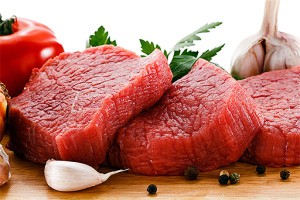
Blog
Cholesterol, Saturated Fat, & Heart Disease
We’ve been told that saturated fat is unhealthy and is claimed to be the cause of heart disease putting you at an increased risk of dying from a heart attack or stroke. Foods that are high in saturated fat include lard, butter, cream, fatty meats, coconuts, and other full-fat dairy products.
In 1913, researchers learned that eating saturated fat correlated with increased levels of  cholesterol in the bloodstream. Some time later, we learned that high levels of cholesterol was linked to increased risk of heart disease. Therefore, it was assumed that eating saturated fat increased your risk of dying from a heart attack or stroke. This was the basis of the “diet-heart hypothesis” and became part of the dietary guidelines before it was ever truly tested and proven. Since that time, obesity has tripled, heart disease has tripled, and diabetes has tripled. The case against saturated fat was pieced together with observational data, short-term trials, animal studies, and guesswork, all showing correlation and none of which proved causation.
cholesterol in the bloodstream. Some time later, we learned that high levels of cholesterol was linked to increased risk of heart disease. Therefore, it was assumed that eating saturated fat increased your risk of dying from a heart attack or stroke. This was the basis of the “diet-heart hypothesis” and became part of the dietary guidelines before it was ever truly tested and proven. Since that time, obesity has tripled, heart disease has tripled, and diabetes has tripled. The case against saturated fat was pieced together with observational data, short-term trials, animal studies, and guesswork, all showing correlation and none of which proved causation.
Clarifying Cholesterol:
The word “cholesterol” is often used inaccurately and most of us have an oversimplified understanding of what it is really doing in our body. For starters, the term “good cholesterol” (HDL) and “bad cholesterol” (LDL) are woefully misleading as these aren’t actually cholesterol at all, they are the proteins that carry cholesterol around in the bloodstream. HDL stands for High Density Lipoprotein and is shown to be protective against heart disease. LDL stands for Low Density Lipoprotein and was linked to increased risk of heart disease.
It sounds logical that if you ate saturated fat, you would increase LDL levels, and therefore, increase your risk of heart disease. However, there are a few flaws surrounding this logic. The first fact that has been mostly ignored is that saturated fat also increases HDL (good) cholesterol. The second problem with this logic is seen in new research showing different subtypes of LDL, some of which are bad and others not so bad. There are very small dense LDL that definitely drive heart disease by penetrating arterial walls easily and starting a plaque formation which can in turn cause a heart attack or stroke. The other type of LDL is a large, buoyant particle that is too fluffy to penetrate the arteries and start a plaque formation. This type of LDL is neither good nor bad, and does not increase your risk of heart disease. The most interesting piece of information that comes from all of this is the fact that yes, eating saturated fat increases HDL and LDL, however it changes the LDL particles from the small, dangerous form to the large, neutral form. So, even though saturated fat can increase LDL, they are changing the subtype from the particles that are associated with heart disease to the particles that reduce your overall risk.
The supposedly harmful effects of saturated fat continue to be the cornerstone of modern “low fat” dietary guidelines. Even though multiple studies have found that there is no link between saturated fat consumption and heart disease. One review of 21 studies, with a total of 347,747 participants, published in 2010 concluded that there is absolutely no association between saturated fat and heart disease. Another review published in 2014, looked at 76 studies, totaling 643,226 participants and again concluded no link between saturated fat and heart disease. On the other hand, there have been many studies confirming the modern “low-fat” diet being preached provides no benefit for heart disease or death. On top of that, the studies that replaced saturated fat with vegetable oils actually show an increased risk.
Cholesterol isn’t all bad. We need cholesterol for many important functions in our body. It is crucial for synthesizing vitamin D and sex hormones like estrogen and testosterone. It works to build cell membranes and produce bile acid to help digest food. Cholesterol isn’t the bad guy, as long as you have the right kind.
Despite thousands of scientists, decades of work and billions of dollars spent, the “diet-heart hypothesis” still has not been supported by any high quality study. The saturated fat myth was never proven in the past, has not been proven today, and will never be proven because saturated fat simply does not increase your risk of heart disease.
Want to know the true culprit to obesity, diabetes, and heart disease? Call us today and make an appointment to take control of your health! Medical Weight Loss Specialists of Bismarck (701) 354-0964.
References:
Adele H. Hite, M.A.T., Richard David Feinman, Ph.D., Gabriel E. Guzman, Ph.D., Morton Satin, M.Sc., Pamela A. Schoenfeld, R.D., Richard J. Wood, PhD., “In the face of contradictory evidence: Report of the dietary guidelines for Americans committee,” Nutrition. 26(10), 2010, 915-924.
Chowdhury, R., Warnakula, S., Kunutsor, S., et al., “Association of dietary, circulating, and supplement fatty acids with coronary risk: A systematic review and meta-analysis.” Annals of Internal Medicine. 160(6), 2014.
Gunnars, Kris., “Saturated fat: good or bad?” http://authoritynutrition.com/saturated-fat-good-or-bad.
H Campose, JJ Genest Jr, E Blijlevens, J R McNamara, J L Jenner, J M Ordovas, P W Wilson, E J Schaefer. “Low density lipoprotein particle size and coronary artery disease.” Arteriosclerosis, thrombosis, and vascular biology. 12, 1992, 187-195.
Minger, Denise., “Death by food pyramid.” (2013), Primal Blueprint Publishing; Malibu, CA.
Siri-Tarino, P. W., Sun, Qi, Hu, Frank B., and Krauss, Ronald M., “Meta-analysis of prospective cohort studies evaluating the association of saturated fat with cardiovascular disease.” The American Journal of Clinical Nutrition. 102(2), 2015.
Weinberg, Sylvan Lee., “The diet-heart hypothesis: a critique.” Journal of the American College of Cardiology. 43(5), 2004, 731-733.
